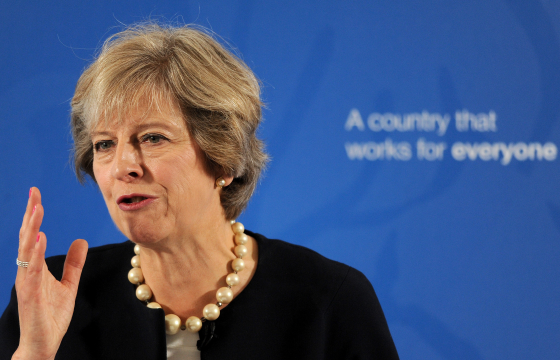Theresa May’s vision of a meritocratic education system in the UK, which includes lifting the ban on creating new grammar schools, has come under heavy criticism.
In a speech to Parliament on Monday 12 September, education secretary Justine Greening presented a green paper on education reform, arguing that the ban on creating selective schools should be lifted.
Greening said that the Government’s plan to bring back grammar schools will be beneficial to many bright children from poorer backgrounds who do not have access to an education that enables them to achieve their full potential.
“This is about being unapologetic for our belief in social mobility and making this country a true meritocracy – a country that works for everyone,” May said before the debate.
The move comes after the last two Conservative prime ministers - John Major and David Cameron - shied away from promises to allow more selective schools. But the make-up of May’s cabinet - 20 members went to state schools and around six of those were grammar schools, including the prime minister’s school - may have brought the proposed education reform back into the foreground.
At a press conference at the end of last week, May made it clear that she did not intend to build a system to accommodate a return to the much maligned 11-plus and secondary modern school. But instead a system that isn’t “saying to poorer and some of the most disadvantaged children in our country that they can't have the kind of education their richer counterparts can enjoy”.
But during Monday's debate, Labour’s shadow education secretary, Angela Rayner, said the Government should stop their “silly class war”, and that – in the light of the proposals – the Conservative’s new mantra should be “segregation, segregation, segregation”. Appealing to all MPs to oppose the plans, along with her own party, Ms Rayner described the proposals as “delusional” and “a disgraceful attack on opportunity and inclusion”.
Former education secretary Nicky Morgan also challenged the plans, questioning how creating more grammar schools would help pupils who were already underachieving or schools that were underperforming.
Labour leader Jeremy Corbyn told the BBC that his party would block the proposals: “Fundamentally, it's the same as the old 11-plus system, in that it is dividing children on the basis of their perceived ability at the age of 11. I don't think that's a good message for our children." Comprehensive schools "help social mobility, help children develop at their own pace and bring communities together", Corbyn added.
Tim Farron, leader of the Liberal Democrats, said: "If the Conservatives care about our children's education they should reverse their cuts to school budgets. We need to improve all schools, not just let some become grammars. Too many pupils are let down by a divisive system that doesn't work."
Sir Michael Wilshaw, who is the outgoing Ofsted chief inspector of schools, criticised the proposals, saying: "If grammar schools are the great answer, why aren't there more in London? If they are such a good thing for poor children, then why are poor children here in the capital doing so much better than their counterparts in those parts of the country that operate selection?"
He said he appreciated that many grammar schools did a "fine job", but added that their record of admitting children from non-middle class backgrounds was "pretty woeful". "The notion that the poor stand to benefit from the return of grammar schools strikes me as quite palpable tosh and nonsense - and is very clearly refuted by the London experience."
Meanwhile, Liberal Democrat peer Baroness Nicholson of Winterbourne has crossed the floor to rejoin the Conservatives after being convinced by May’s education reform.
She praised the Prime Minister’s “real commitment to delivering for the next generation and building a country that works for everyone”. Lady Nicholson has previously been a Conservative, leaving to join the Liberal Democrats in 1995.
The green paper also recommended relaxing the rules on faith schools.
The new rules could allow new Catholic schools to open in England. A Downing Street spokesman said: "It has failed to make minority faith schools more diverse, because parents of other religions and none do not send their children to those schools.
"But it has prevented new Catholic schools from opening, which are more successful, more popular and more ethnically diverse than other types of state school."
For more on this story see this week's issue of The Tablet.




 Loading ...
Loading ...